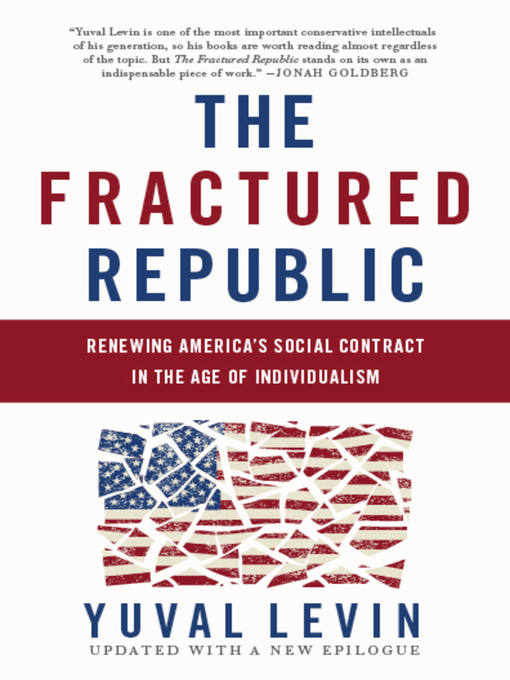
The Fractured Republic
Renewing America's Social Contract in the Age of Individualism
کتاب های مرتبط
- اطلاعات
- نقد و بررسی
- دیدگاه کاربران
نقد و بررسی

March 28, 2016
Levin (The Great Debate), founder and editor of National Affairs, examines America’s “subculture wars” in this disappointing book-length essay. He posits that the country’s economic and cultural fracturing, as seen in the rise of a two-class society and the polarization of politics, haunts all good-faith efforts at reform. Levin’s cautious analysis covers political ground that’s already been walked many times. His equivocal strategies for conservatives—such as presenting themselves as “an attractive minority in a nation of minorities”—have self-evidently limited political appeal. Levin critiques “expressive individualism” and multiculturalism, but in such muted ways that it’s hard to understand why he disapproves of them. Sober, abstract, and professorial, Levin’s book is nuanced and measured to the point of being bloodless. His high-minded reflections on first principles, fragmented institutions, and centralized power may impress establishment conservatives, especially those for whom Donald Trump and the Republican Party insurgency are a troubling surprise. But the rapid realignment of political sentiments amid election-year tumult makes Levin’s musings seem detached from current affairs.

March 15, 2016
A voice of both reason and establishment conservatism offers a prescription for renewed political discourse and bipartisan action. You won't hear many liberals saying that conservative voices make for healthy political balance, or vice versa. Levin (The Great Debate: Edmund Burke, Thomas Paine, and the Birth of Right and Left, 2013, etc.), founder of the journal National Affairs and a distinguished student of Edmund Burke, understands that a middle lies between left and right. The right tends to complaints of moral apocalypse and jeremiad: as the author notes, if you had told a conservative 60 years ago that out-of-wedlock birth would increase tenfold to the present, "he probably would have painted a nightmarish spectacle that would bear little resemblance to our relatively thriving society." Conversely, the left tends to alarmist talk about economic matters, especially inequality, "in ways that suggest that the sky could fall on our society any minute." Can there be middle ground? Yes, writes Levin, in ways that accommodate some of the best things about both traditions while decentralizing power to "create a constructive tension that can help us to make the most of democratic capitalism." The operative word is "constructive," and this in the place of what Levin criticizes as the tendency of both political wings to fall into golden-age nostalgia that does not admit of much action, the left for the 1960s and the right for the '80s. Some of the author's proposals are too lightly sketched to test, but they are interesting all the same. One example is his call to privatize certain public services but at the same time allow other public services to compete in the open market--allowing, for instance, post offices to double as banks, a note that Bernie Sanders has been sounding of late. Against "fracture and deconsolidation," Levin even suggests that "Right" and "Left" designations may not be useful. Refreshingly optimistic; in our diversity lies great strength, Levin writes, a strength that can be tapped once all the rancor is put aside. Highly recommended for readers of whatever political stripe.
COPYRIGHT(2016) Kirkus Reviews, ALL RIGHTS RESERVED.

























دیدگاه کاربران